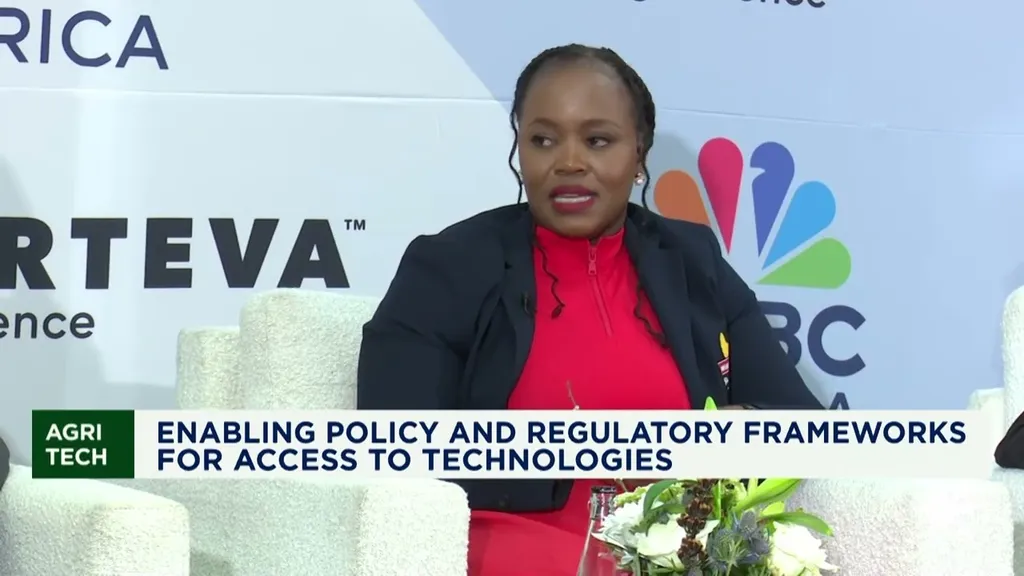In a recent move to spotlight the critical role of technology in African agriculture, Corteva Agriscience, in partnership with CNBC Africa, hosted a live panel discussion in Johannesburg. The event brought together key stakeholders from across the agricultural value chain to explore the transformative potential of technology, the future of the seed sector, and the essential partnerships needed to build a more resilient and sustainable food system.
The discussion underscored Africa’s potential to become a global agricultural powerhouse, a prospect that hinges on the alignment of technology, policy, and private-sector investment. Wandile Sihlobo, senior economist at the Agricultural Business Chamber (Agbiz), emphasized the need for long-term structural change rather than short-term interventions. “As the continent remains vulnerable to climate shocks and economic volatility, the focus should be on long-term structural change rather than short-term interventions,” Sihlobo said. He highlighted that digital technology, advanced genetics, and farmer-focused solutions are central to improving productivity across African markets.
Abraham Vermeulen, commercial lead at Corteva Agriscience, Africa Middle East, reiterated the company’s commitment to innovation in seed technology and sustainable farming practices. “We don’t just create products — we develop technology designed around farmers’ real needs: resilience, reliability, and return on investment,” Vermeulen stated. He stressed the importance of private-sector research working hand-in-hand with supportive policy environments to unlock large-scale impact.
The panel reached a consensus that Africa’s agricultural resilience depends on developing home-grown research capacity. While global technologies are essential, African countries must also strengthen their own scientific and breeding capabilities. “Africa cannot afford to rely on solutions that are not adapted to its local realities,” one panellist noted. “We need our own science, our own innovation systems, and stronger regional collaboration to enhance agricultural potential.” The adoption of technology, the panel agreed, requires political will, investment in education, and long-term planning.
Ferdie Meyer, Managing Director of the Bureau for Food and Agricultural Policy (BFAP), highlighted the sector’s performance despite economic challenges. “Africa’s agricultural sector, despite decades of underutilised potential, has shown resilience and dynamism — particularly in South Africa, where it has outperformed broader economic growth,” Meyer said. He added that while agreements like the African Continental Free Trade Area exist, execution on the ground — such as logistics, border management, and market access — remains key. Ultimately, technology adoption, responsive regulation, and infrastructure development are essential to realising Africa’s agricultural potential and contributing to both local food security and export growth.
Lebohang Dhludhlu, a successful commercial farmer and CEO of Nkanyezi Group, underscored the transformative potential of technology and innovation in agriculture, especially for young people and women entering the sector. “Access to funding and support from organisations such as Corteva has enabled me and others to pursue agricultural ventures, showing that the sector can provide viable, sustainable livelihoods,” she said. Dhludhlu emphasized the importance of practical guidance and market information, noting that data-driven insights allow farmers to make informed decisions about what to plant and when. She called for expanded access to training and support to ensure that young and emerging farmers can fully leverage technological advancements.
Throughout the discussion, Africa’s immense agricultural potential was emphasised, with technology positioned as central to unlocking it. From gene editing and advanced breeding to sustainable farming practices, these innovations enable farmers to improve productivity, strengthen climate resilience, and generate sustainable livelihoods. “At Corteva, we are committed to investing long-term in Africa — working closely with farmers, universities, and governments to make cutting-edge technology accessible, practical, and impactful,” Vermeulen said. “When farmers thrive, the entire agricultural value chain benefits, creating food security, export opportunities, and inclusive growth across the continent.”

